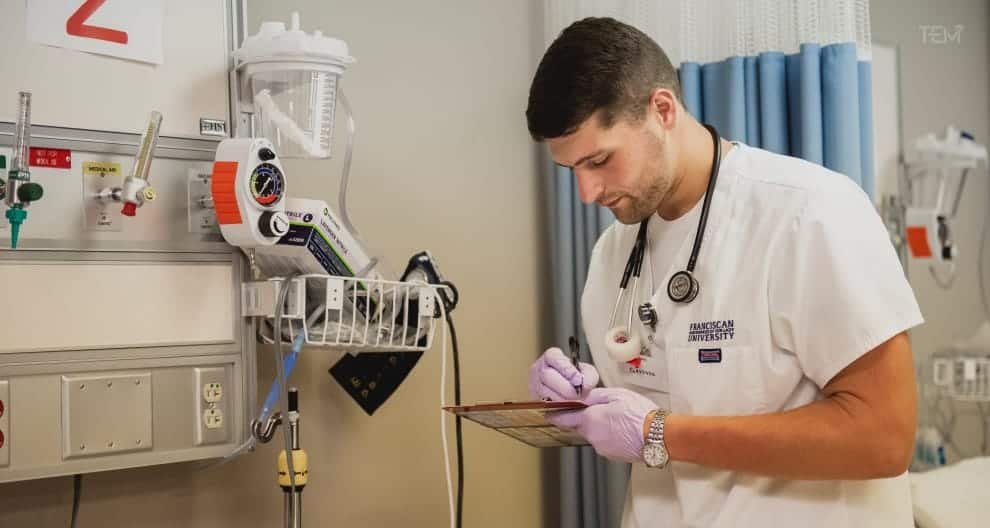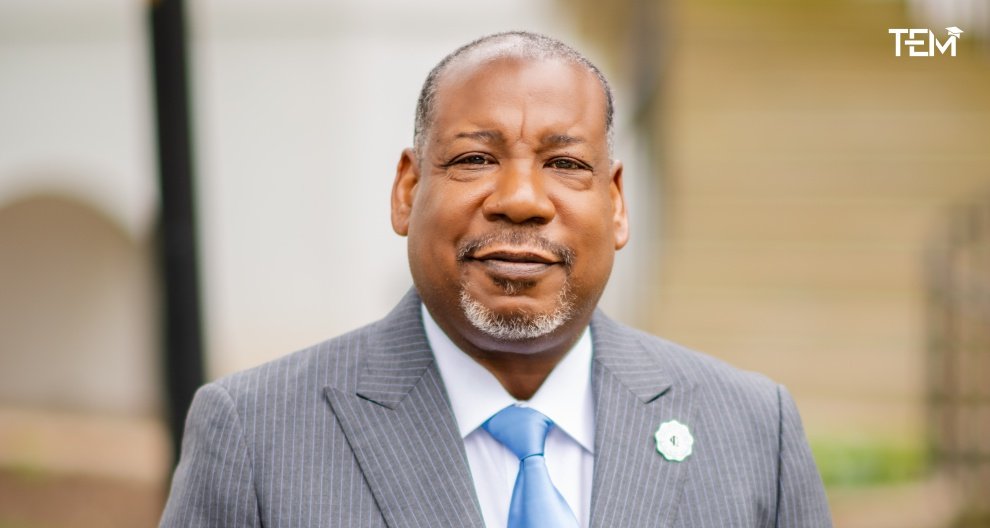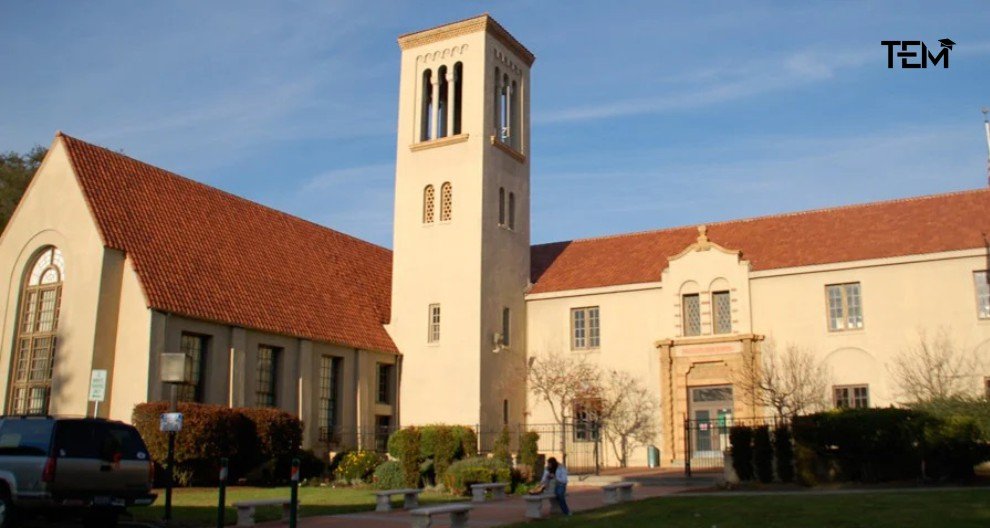Situated in Baton Rouge, Louisiana, Franciscan Missionaries of Our Lady University (FranU) is a small, private-faith based, not-for-profit institution with a profound emphasis on healthcare. Established in 1923 as a school of nursing for serving the workforce needs of its affiliated hospital, FranU has today become a university that educates and forms service-minded professionals in a broad array of high demand fields.
Despite being a private university, FranU meets the publics’ needs. Its mission is to educate and form Franciscan servant leaders and the curricula address the aspects needed to graduate highly skilled professionals. All curricular and co-curricular programs are designed to meet the needs of the broader community. Additionally, all programs offered by the University include a rigorous core that prepares integrated thinkers and faith-filled citizens.
Programs
Presently, FranU offers academic programs in nursing, health sciences, humanities, behavioral sciences, and natural sciences. With 17 degree programs and six certificate programs, the University is organized among three schools—the School of Arts and Sciences, the School of Nursing, and the School of Health Professions. It enrolls nearly 1400 students, who are primarily Louisiana residents. However, the graduate programs are attracting numerous students from throughout the country.
The programs offered at FranU include Biology, Business Administration, Great Books, Health Sciences, Medical Laboratory Science, Nursing, Physical Therapist Assistant, Psychology, Radiologic Technology, Respiratory Therapy and Theology. Additionally, FranU offers several Master’s, Doctoral, and Certificate programs.
A Holistic Approach
FranU is committed to helping its students succeed by providing a holistic approach to formation through a variety of services, programs, and experiences to enhance the Franciscan Catholic mission and complement the academic curriculum. The University offers student programs and services including—academic coaching tutoring, career and vocation services, academic advising, counseling, disability services, student development, health and safety programming, and faith exploration and development. Life at FranU for a student involves managing a course load of 12-15 hours, clinical rotations, 12-15 hours of studying per week, and working either full or part-time off-campus. A large majority of students are enrolled in nursing and allied health, and the average age of a FranU student is 26 years.
Upholding a Franciscan World View
Being a Franciscan university, FranU holds a distinctly Franciscan world view. Moreover, as a Catholic university, it upholds certain teachings and principles. The Franciscan world view includes an understanding that all people are created in the image and likeness of God. All are welcome in a Franciscan community. This sense of exceptional hospitality is at the root of FranU’s approach to diversity and inclusion.
At FranU, a majority of students come from Louisiana, with a growing number coming from other states throughout the country. The University is non-residential and its student population represents a broad range of backgrounds. Moreover, a portion of the undergraduate population is made up of first-generation college students.
Furthermore, FranU does not recruit international students as it has not developed the specific infrastructure necessary to serve the particular needs associated with an international student program. Student services, in particular, are an important component of this infrastructure that is designed to meet the needs of an international student population. Enrollment management leaders at the University were studying the feasibility of an international student program at FranU before the pandemic. However, the constraints due to the pandemic have led the university to postpone the project.
Discipline-Specific Accreditation
The institution of regional accreditation has been one of the most important developments in American higher education. Alongside regional accreditation, certain discipline-specific accreditation organizations have also emerged to ensure adherence to quality standards. FranU’s regional accreditor is the Southern Association of Colleges and Schools, Council on Colleges (SACSCOC).
FranU believes that regional accreditation is beneficial for both the University and its students as it helps to ensure high standards and best practices in higher education. Moreover, the University is also accredited by a litany of discipline-specific accreditation agencies, especially in all levels of nursing and all health professions degree programs. The University consistently receives excellent reviews by accreditation teams both from its regional accreditor and from the many discipline-specific accrediting agencies.
Keeping up with the Technological Trends
Healthcare and health sciences are among the most critical sectors in the society to test, deploy, and utilize technology to advance the care and health of communities. “As a university emphasizing on health sciences, FranU is compelled to keep up with the developing technologies so that when its students graduate, they have a robust contemporary skillset and critical thinking ability to be successful in their chosen profession,” says Tina Holland, PhD (President and CEO of the Franciscan Missionaries of Our Lady University).
The University keeps up with the technological trends through its practitioner faculty, who utilize technology that is deployed first-hand in clinical settings. The faculty constantly update the curriculum to respond to the changes and new developments in technology. FranU invests in faculty professional development so that they are exposed to new developments, including innovative technology in their disciplines. “We also engage the community of practitioners to serve on advisory committees to give input on necessary professional skills, new technology, and new equipment being deployed in clinical settings,” adds Holland.
Choosing the Ideal College
Today, numerous educational institutions are emerging day by day. Students thus have several options from which to choose. However, too many options sometimes may be overwhelming or might create confusion for a student. Having led a successful institution like FranU, Holland believes that students should consider three key factors – mission fit, program offerings, and affordability –while choosing a college.
According to Holland, students should first consider the degree to which their interests and dispositions align with the mission of the institution. A college should challenge the student’s thinking and lead them to question some of their pre-existing assumptions. Moreover, the college experience – while stretching the imagination of students – should not completely overturn all that they have held sacred or send them into a crisis of faith. Thus, students should seek the combination of challenge and support that is right from them.
Holland further mentions that a student should ensure that an institution offers the program or programs that interest them. If students believe they are certain of the specific area of study they want to pursue, it is important that they also have alternative choices in mind and that the institution offers those alternatives as well. She adds that students should also understand all that comprises the total cost to attend a given college or university. Students need to calculate room and board, fees, and other expenses that contribute to the total cost of attending the college or university they choose. Students should also learn about the institution’s financial policies, including tuition payment options and the availability of financial aid.

Read Full Post, The 10 Prominent Colleges in the USA, 2021


